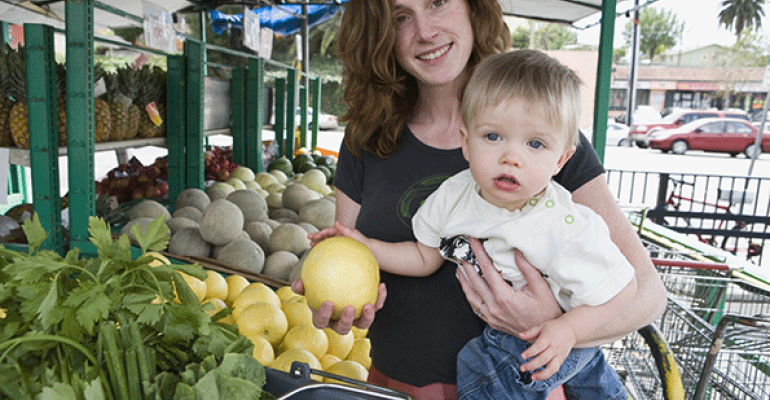Millennials are more interested than ever in healthful eating, but the generation has a unique perspective on what it means to eat well, according to Laurie Demeritt, CEO of the Hartman Group, Bellevue, Wash.
“It does not always mean nutritionally healthy. I think all of us would love to believe this means they are cutting calories and watching fat. Healthy to Millennial means fresh, less processed food,” she said during an FMI Connect presentation in Chicago last month.
For instance, this Millennial mindset is driving butter sales and a shift away from margarine, Demeritt said.
As Millennials have gotten older, their interest in health and wellness has grown. In 2014, 59% of Millennials said they are starting to develop healthy eating habits, compared with 47% in 2011.
In addition to eating fresh, unprocessed food, Millennials value rest and sleep as a health and wellness “pillar,” said Demeritt.

Demeritt said while previous generations championed getting by on four hours of sleep as a badge of honor and efficiency, that is not the case for Millennials.
“It’s part of what they see as health and wellness. And we’re starting to see that reflected in society today. We can see all of this quantification of how you slept last night.”
Aside from sleep, rest time is prioritized by this generation, through vacations or technology-free time, she said.
More Millennials are staying active, too, with 51% reporting that they regularly exercised or engaged in activities to reduce stress levels in 2014, compared with 43% in 2011.
However, the group also has a different take on what staying active means.
“It’s not necessarily what my generation considers active — doing exercises at the gym — it could be more of a sense of play, adventure and fun when it comes to staying active,” said Demeritt.
Almost half of all Millennials said it was more important to relax and unwind than to work out.
Millennials consider social connections to be part of health and wellness. These social connections can be in person or virtual.
Household compositions
Gone are the days of the two-parent, two-child household. Millennials are having children later, leading to fewer households with children.
“Only 28% of all U.S. households have kids under the age of 18 in them,” Demeritt said. “And that’s an interesting fact we believe because so many marketers are still thinking about marketing to mom and marketing to the family when what really what we’re seeing is a huge decline in the number of families that are around today.”
Instead, single-family households are growing — now 28% of the U.S. population — as are multigenerational households — 16% of the population.
| Suggested Categories | More from Supermarket News |
 |
|
 |
|


